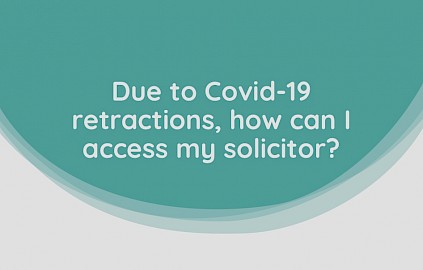Understanding Sepsis
Sepsis, also known as blood poisoning or septicaemia, occurs when the immune system overreacts in response to an infection, causing inflammation in many parts of the body and damaging organs and tissues.
If not diagnosed and treated quickly, sepsis can lead to multiple organ failure and even death. Anyone can develop sepsis after an injury or minor infection, although some people are more vulnerable. People most at risk of sepsis include those who:
- Have a weakened immune system
- Have just had surgery
- Have injuries as a result of an accident
- Are in the hospital with a serious illness
- Are very young or very elderly
If the body is allowed to go into overdrive as a result of an infection, the patient can experience inflammation, swelling, blood clots or septic shock. Septic shock typically develops within the first 24 hours of sepsis and occurs when blood pressure falls below a certain level. It’s very serious, with around three in five cases proving fatal.
Diagnosing Sepsis
There are several signs which indicate you may have sepsis. These include:
- Slurred speech
- Muscle aches
- Difficulty breathing
- Extreme shivering
- Skin discolouration
- Loss of appetite
- Rapid heart rate
- Weakness and confusion
If you think you or a loved one might have sepsis, seek medical attention immediately.
When presented with suspected sepsis, healthcare professionals assess the symptoms and ultimately confirm sepsis through a blood test.
Treating Sepsis
Any healthcare professional, including hospital doctors, nurses, paramedics and GPs, can assess the symptoms above. If sepsis is caught early, patients can often recover at home with antibiotics.
However, antibiotics aren’t always enough to combat strong infections such as those that sepsis causes. Once patients are admitted to the hospital, sepsis is managed through three treatments and three tests, popularly known as the ‘sepsis six’.
|
Treatments |
Tests |
|
|
Consequences of Sepsis and Negligence
Sepsis isn’t uncommon and can be triggered by any infection or injury if left untreated long enough. However, if allowed to develop, sepsis causes multi-organ failure and sometimes death.
Many people who survive sepsis are left physically disabled or mentally unwell for the rest of their lives — for example, through post-traumatic stress disorder, chronic pain and fatigue, organ dysfunction and amputations.
Apart from physiological and emotional harm, failure to successfully treat sepsis can result in severe financial hardship if the patient can no longer work or if a family loses a primary earner.
Medical Solicitors has won many sepsis negligence claims, helping patients or their families get justice for medical negligence and secure compensation to cover long-term loss of work and wellbeing.
How a Sepsis Compensation Claim Can Help
Sepsis medical negligence can cause severe mental, physical and financial suffering. If you or a loved one has received substandard care or delayed treatment, you may feel very worried about your future or that of your family. Resulting disabilities, lasting complications, ongoing treatments and drastic lifestyle changes can turn your life upside down.
Financial compensation can help provide security and stability, taking some pressure off during a stressful time. Making a medical negligence claim for sepsis is a way to fund private care, lifestyle adjustments, travel for medical appointments and even specialist equipment. Medical Solicitors can assist you with your sepsis medical negligence claim.
Calculating Your Sepsis Negligence Claim Settlement
Sepsis patients or their families may be able to claim financial compensation when:
- Diagnosis is delayed
Healthcare professionals failed to spot the signs of sepsis early enough, and this made the condition worse.
- Treatment is delayed
Healthcare professionals failed to begin treating sepsis early enough, and this made the condition worse.
- Sepsis is misdiagnosed
Healthcare professionals misinterpreted the symptoms of sepsis, and this made the condition worse.
- Patients receive substandard care
Healthcare professionals have mismanaged the treatment of sepsis — for example, by providing inappropriate care or advice.
General Damages
The UK Judicial College’s 17th Edition Guidelines for the Assessment of General Damages in Personal Injury Cases outline the value of injury claims. Sepsis negligence can lead to a very wide range of life-altering injuries, so below we cover the brackets for brain damage.
- Very Severe Brain Damage: £344,150 to £493,000
A serious brain injury which limits the victim’s ability to acknowledge their surrounding environment. There is very little or no language function, and a need for constant care.
- Moderately Severe Brain Damage: £267,340 to £344,150
A brain injury which leaves the victim severely disabled and dependent on others. There is a need for constant care and medical support. Disabilities may be physical or cognitive.
- Moderate Brain Damage (I): £183,190 to £267,340
A brain injury which leaves the victim less dependent on others compared to the brackets above. There is moderate to severe damage to the intellect, changes in personality, problems with sight and speech and a serious risk of epilepsy.
- Moderate Brain Damage (II): £110,720 to £183,190
A brain injury which causes moderate damage to intellect, and the possibility of returning to employment is either low or non-existent. Possible risk of suffering from epilepsy.
- Moderate Brain Damage (III): £52,550 to £110,720
Concentration and memory are badly affected, and there is a lower risk of epilepsy. Employment opportunities may be lower than before the injury, but there is less dependence on others.
- Less Severe Brain Damage: £18,700 to £52,550
The injured party makes a good recovery and can return to social and work environments. There may be some ongoing issues, such as mood swings or memory problems.
- Minor Brain or Head Injury: £2,690 to £15,580
Minor injuries in which permanent brain damage is minimal or non-existent. The final payout depends on the recovery time, the severity of the initial injury and ongoing symptoms.
Special Losses
As well as the value of your injury, you’re entitled to claim any past, present and future financial loss that demonstrably results from sepsis negligence and ensuing injuries. Financial loss can include:
- Loss of income
You may have been unable to work for a period of time or had to give up work altogether. Alternatively, a partner may have had to give up work to care for you.
- Private care
If family or friends have served as unpaid carers, professional carers can be paid to step in and take their place.
- Social isolation
If you’re isolated as a result of your injury, a nursing care manager can be appointed to plan for your needs, oversee private care and employ a personal companion or ‘buddy’.
- Travel expenses
If travelling for necessary medical appointments leaves you out of pocket.
- Moving home
If you have to move to single-storey accommodation or need help finding a suitable property.
- Adapting your home
An architect may be appointed to advise on the cost of adapting your home and installing aids and equipment, such as ramps, grip rails, toilet rails and wheelchairs.
- Orthotics
If special footwear or spinal corsets are shown to benefit your mobility. Such items and future replacements can cost a significant amount of money.
- Other reasonable financial losses
Such losses may initially seem speculative, but sepsis compensation claims can be approved if a court is satisfied that there is a reasonable need, for example, surrogacy costs if sepsis negligence has caused fertility issues.
Why Choose Us as Your Sepsis Claim Solicitors
If you think you or a loved one has suffered substandard sepsis care, then our sepsis negligence claim specialists are here to support you. Medical Solicitors can help you find out what went wrong and what you can do about it.
With Medical Solicitors, you don’t have to worry about legal costs when claiming for sepsis negligence. Our ‘No Win, No Fee’ agreements guarantee that you won’t pay a penny until you secure your sepsis claim compensation.
Contact our sepsis claims specialists at Medical Solicitors today.
Please note: Medical Solicitors specialises in sepsis claims involving healthcare providers in England and Wales. Unfortunately, we do not handle sepsis claims outside of these regions.










